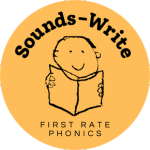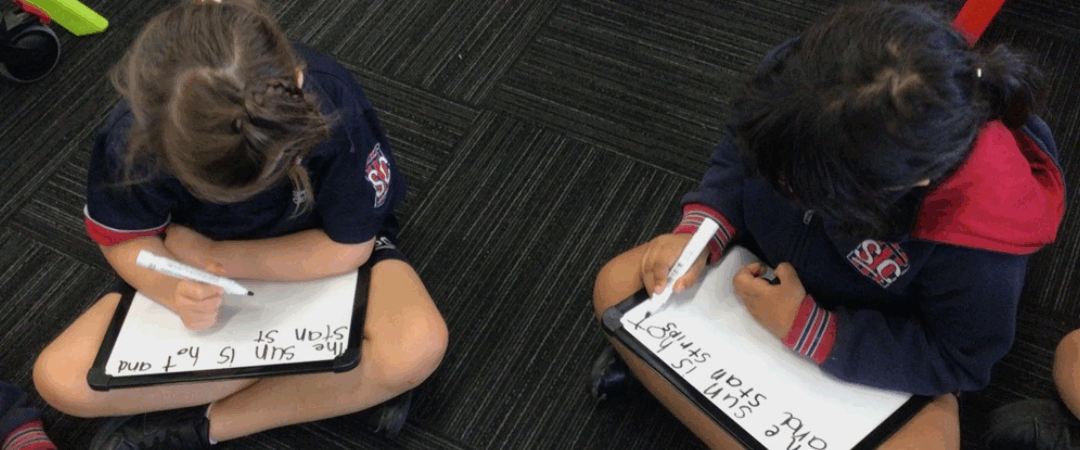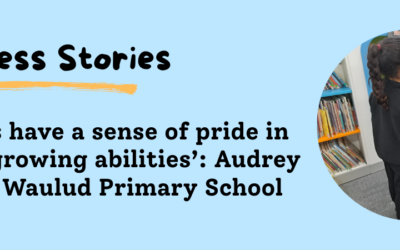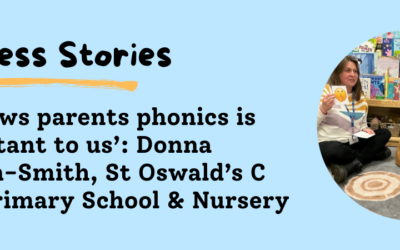The leadership team has supported the implementation of Sounds-Write at Springfield Central, a large primary state school outside Brisbane, Australia.
Why did you choose Sounds-Write?
Our school was in its third year of a large whole school reading inquiry and when reviewing our student reading data, we were seeing an increase in students experiencing reading difficulties in year 3. We began a spiral inquiry into reading in the early years and became increasingly aware that we needed to align our teaching of reading and spelling to the overwhelming research around how students learn to read and spell. We researched many evidence-based, structured synthetics phonics program to support our teaching of phonics and could see that Sounds-Write was a well-developed, evidence-based program that aligned to current research. We particularly liked the theory around cognitive load and that all students, regardless of their ability, can access this program with their peers. Fortunately, this change is in alignment with departmental expectations.

We particularly liked the theory around cognitive load and that all students, regardless of their ability, can access this program with their peers.
Springfield Central State School, Queensland
How did you implement Sounds-Write and how did staff and students react?
We implemented Sounds-Write gradually over time to ensure we could do it with fidelity and monitor and track student outcomes to see it was right for us. Members of the leadership team trained in 2020 and then one year at a time from Prep to Y3 between 2021 and 2024. We have just trained our year 4 teachers ready for 2025. The training was thorough. What was particularly great was that it gave us an understanding of the ‘why’ behind the program. There was plenty of time dedicated to modelling and practicing of the lessons within the program. Our local Sounds-Write trainer has been immensely helpful, answering any of our questions and queries. The resources and Practitioner’s Portal have been a great support, allowing teachers to focus their attention on planning that responds to the formative assessment they are collecting daily as they teach phonics. Access to ongoing training and free webinars is amazing. Staff were excited to attend the training and our students love their daily phonics lessons.
What’s the impact been on progress and how have students and parents responded?
The students love their phonics sessions. All students are empowered to be successful through the differentiation and scaffolding within the lessons, which means that all students are engaged and participating for the full 30 mins each day. We have spent some time building community, understanding about the changes we’ve made, and parents have loved seeing their children gain confidence and a passion for reading and writing. This is corroborated by the data.
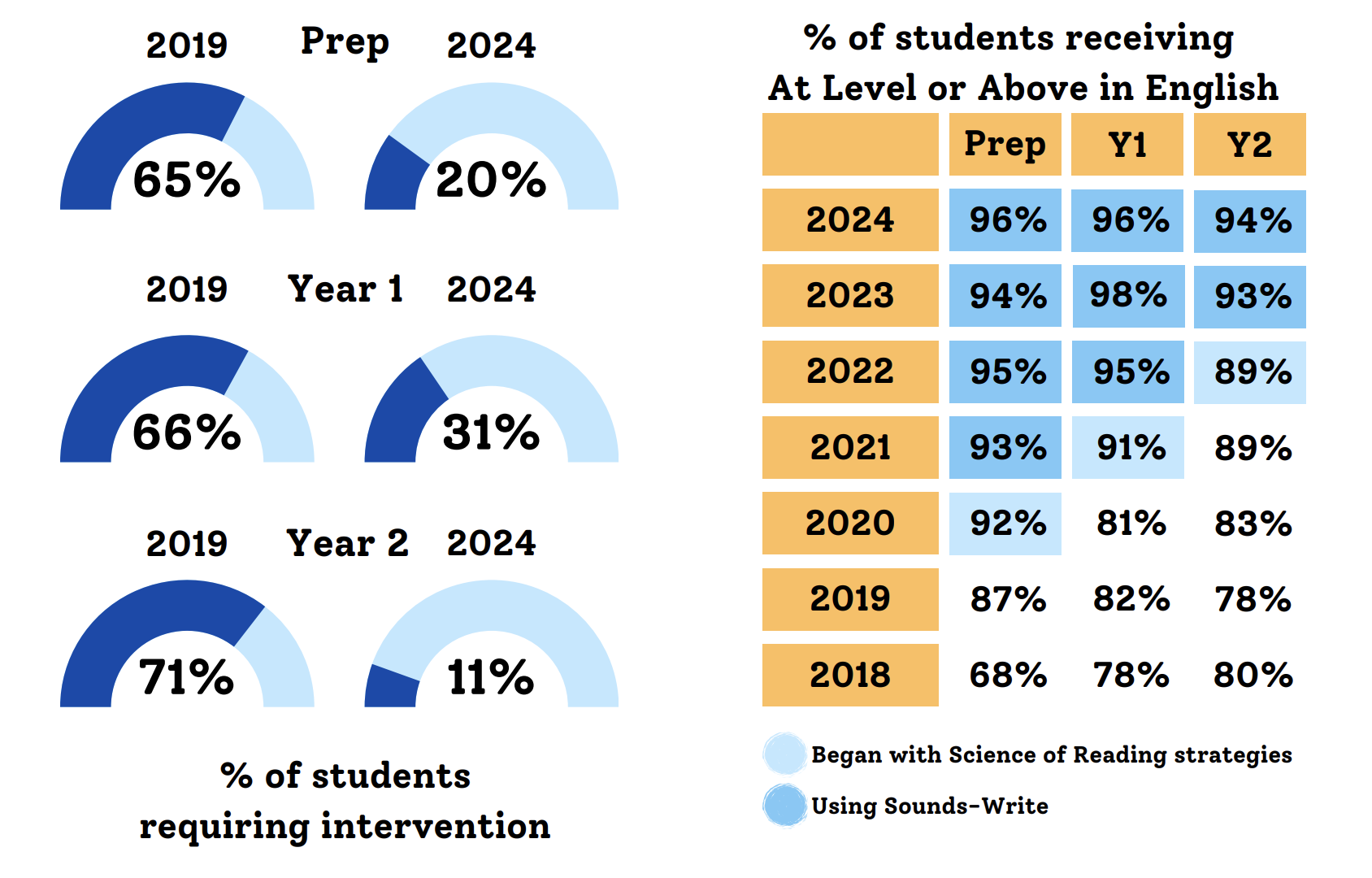
How do teachers/staff feel about Sounds-Write?
Staff get excited when they know they are about to attend the Sounds-Write training as they hear from other members of staff about the positive impact it is having on student outcomes. Our school has invested in an Early Years Coach who supports teachers in delivering Sounds-Write with fidelity. Although we teach all lessons as directed, teachers are encouraged to focus on mastering a few scripts initially and then, as their confidence grows, they add in more scripts. Through coaching conversations, seeing lessons modelled, observations and feedback, teachers quickly are able to deliver the program effectively.
Any tips for other schools who are considering Sounds-Write?
Our experience has been overwhelmingly positive. The program is evidence-based, structured and sequenced with scripts to follow. You have access to all the resources you need to deliver engaging lessons which all students can participate and feel successful in. The programme is aligned to the Australian Curriculum V9 and the impact we have seen in our data, in terms of increased student achievement and decreased number of students accessing intervention, speaks for itself.
You may also like
‘Pupils have a sense of pride in their growing abilities’: Audrey Duffy, Waulud Primary School
Audrey Duffy, Phonics Lead at this two-form entry school in Luton, explains how careful planning and the rigorous training of all staff has delivered solid results, and led to obtaining Silver accreditation in recognition of the school’s commitment to high quality...
Phonics Screening Check – Tips for a Strong Start to the Academic Year (Australia)
Whilst the timing of this blog was prompted by the start of the new academic year in Australia, the guidance will be useful to teachers using a Phonics Screening Check anywhere around the world. In fact, we shared a VERY similar post back in September for the start of...
‘It shows parents phonics is important to us’: Donna Wilson-Smith, St Oswald’s C of E Primary School & Nursery
Donna Wilson-Smith, Headteacher at St Oswald’s Church of England Primary School and Nursery and a former Sounds-Write Literacy Specialist, shares with us how they have been using Sounds-Write in the nursery to get children ready to start their literacy journey.Tell us...
Discover Sounds-Write
Book a free consultation to discuss your individual training needs.
